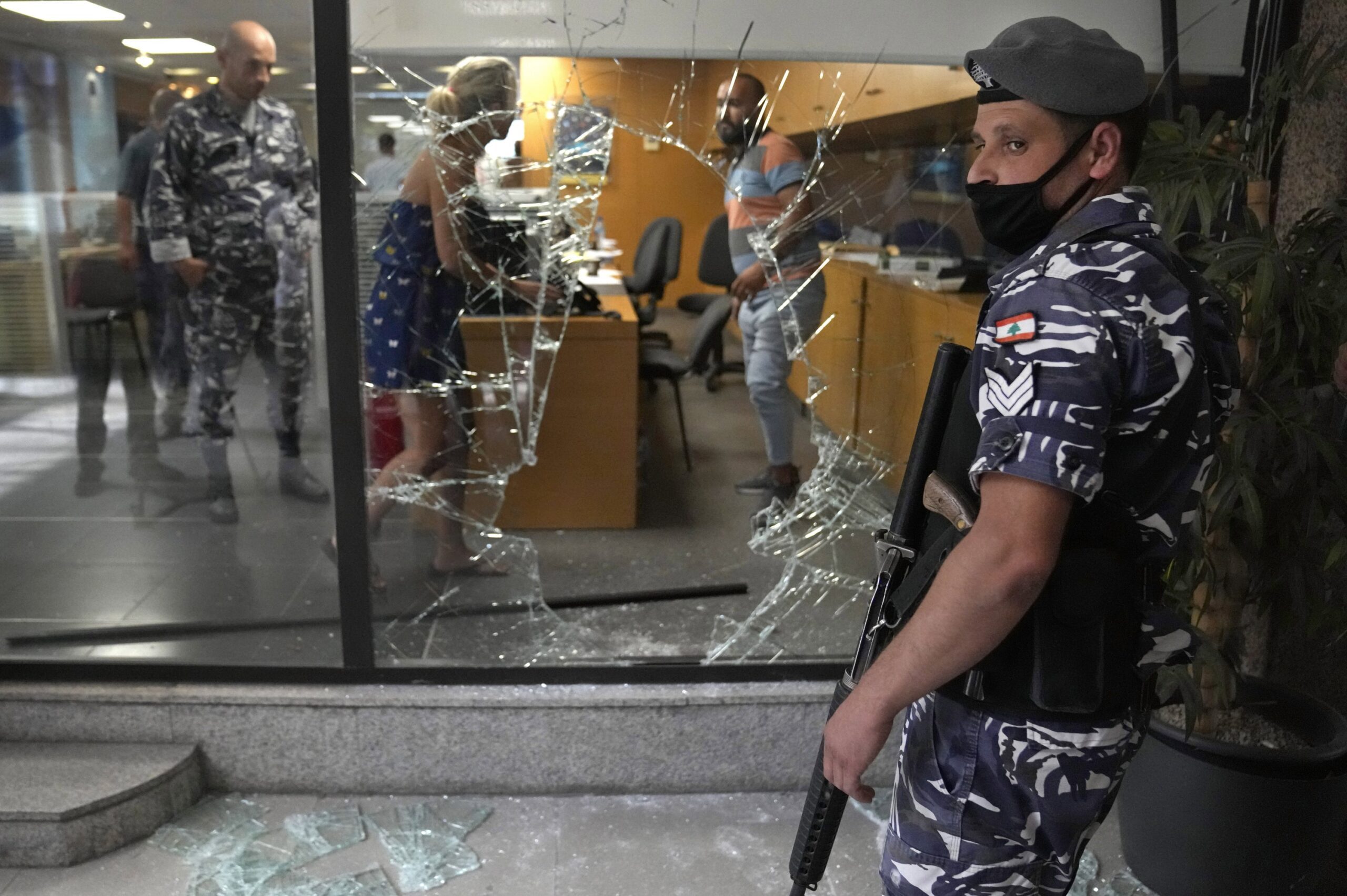Lebanon saw three depositors reclaim their savings through bank hold-ups across the country this past Monday and Tuesday.
On Monday, a man, accompanied by his 13-year-old son, staged a holdup at Bank Al Mawarid in Antelias, managing to recover his savings of $15,000.
Following his success, two separate holdups took place in Chouf and South Lebanon, managing to get $9,000 and $7,000 of their savings, respectively.
As banks across the country continue to illegally restrict depositors’ access to their savings – a move implemented at the beginning of Lebanon’s economic crisis in 2019 – many citizens took it upon themselves to retrieve their money by force.
The trend started in early 2022, when a man held bank employees and customers hostage, asking for his savings. The man was later identified as Abdallah Al Saai.
Al Saai was then given part of his deposits, before surrendering himself to security forces.
In August 2022, another man stormed Federal Bank in Hamra, Beirut to retrieve part of his $210,000 savings to pay for his sick father’s treatment. The man was later identified as Bassam al-Sheikh Hussein, and he was able to successfully retrieve $35,000 before being arrested.
A few weeks later, a woman, Sali Hafez, broke into BLOM Bank in Sodeco accompanied by a group of people, to demand money from her account to pay for her sister’s cancer treatment. Hafez reportedly threatened employees with what was later identified as a toy handgun, before going into hiding. Hafez eventually turned herself into the authorities, and was released on bail.
In September, many banks shut their doors in anticipation of additional “heists.”
Ever since, these heists have become increasingly common, with groups such as the Cry of the Depositors supporting citizens committing the acts and staging protests in solidarity with them.
In November 2022, the Lebanese army held training sessions in anticipation of these heists. The training simulated a “security incident” at the bank, with the overall purpose being to “detain the perpetrators.” The training was facilitated by US and British trainers, as stated in a tweet.
The Association of Depositors in Lebanon criticized the move, tweeting “is it not better to arrest those who stole people’s money?”
Since then, banks have taken increasingly securitized measures to protect themselves, and have often gone on strike for several days, further restricting citizens’ ability to access their money.
At the start of the 2019 uprisings, banks had already increased security measures such as adding metal barriers and barricades, and locking ATMs behind metal windows, as they slowly started to implement capital control measures.
On various occasions, perpetrators of the “heists” have been hailed as heroes and encouraged by the local community – a sign of the deep exasperation felt by many in light of the financial crisis.
Such acts are expected to keep going so long as depositors are unable to access the sums they have saved for decades, as Lebanese authorities are yet to implement any financial or economic reforms


